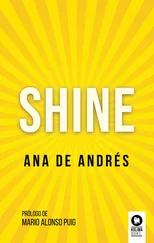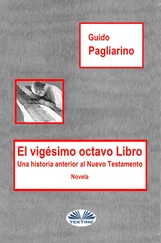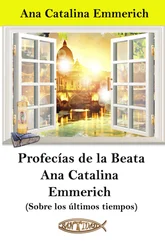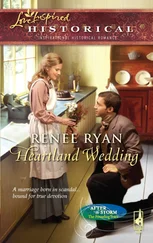That afternoon, Don Manuel made Serafina wait outside his front door while he put on the clean clothes. Before the lesson started, he announced that he would also teach her the rudiments of Anatomy, Physiology, and Philosophy. She wondered what the three were, and why only rudiments, but dared not ask, still afraid he might be toying with her before kicking her out. (Serafina knew nothing about her mother’s “sodomite” leverage.) Don Manuel explained to her the theory of humors, which overlapped all three of these sciences. Serafina paid close attention this time. This theory might be the key to the acrid odor that emanated from the old man, even after he had bathed (his hair was still damp) and was wearing clean clothes. On her way out, he gave her his soiled nightgown and cap to wash and iron. From then on, she washed his clothes once a week.
One afternoon, Don Manuel did not answer the door. Serafina peeked through a crack in his bedroom wall and saw him sprawled on the floor, holding an empty bottle of rum. She forced open the bedroom window and climbed through it. Don Manuel was dead. She did not need his anatomy lessons to know. She had seen her mother die, and she had killed many chickens and one pig. In the three years since she first washed his clothes, he had taught her everything he knew, and she had also learned from his books many things he did not know or had forgotten. The art of writing love letters was the only thing that she was unable to learn. He tried to teach her, hoping to put her to work for him in the port market, where the novelty of a female scribe would have made him some money. Her letters were too short and to the point, and without the indispensable flourishes. When forced, she would try to add some, but they would be either obscure or inappropriate. Instead of flowers, birds, butterflies, dew, sunsets, fair hands, rivers, and so on (he had gone so far as to draw a list for her), she would weave in dogs, pigs, hay, gold doubloons, mud, and buttons. “These are love letters, not a shopkeeper’s account book,” he told her with his usual distaste (his decision to unselfishly devote his last years to Serafina’s education had increased his dislike of her in direct proportion to the admiration of his, and God’s, handiwork). “I am going to be a shopkeeper,” Serafina thought, flattered by Don Manuel’s conclusion, but careful to keep her mouth shut. For the past six months, Don Manuel had nothing left to teach her except for those silly love letters. Everything that was left to learn in his shack she had extracted herself from his books. Now, it was not so much what the books said, but what they left out. Serafina had discovered recently, in awe, the gaps and silences in books. She was now reading between words, beyond words, and without words. It was great fun: Serafina was still a child. She could do it from memory, while washing and ironing, cooking (she had begun selling cod fritters in the market and was now delivering two dozen every Thursday morning to one of her laundry clients), walking, and even sleeping.
By dying when he did, Don Manuel decreed the end of Serafina’s formal education and the beginning of her adult life. Serafina was happy that the choice had not been hers. The inevitable felt luckier. She buried Don Manuel under her mother. At first, she had found it distasteful, but a separate grave cost too much, and the pauper’s field was out of the question. Besides, she had scrubbed him well before putting him there, and it was only provisional. Once she had the money, she would move her mother into a bigger, nicer, plot. Serafina sorted out Don Manuel’s books, moving the good ones to her shack, and burning in a bonfire the stupid and fraudulent ones. The complete works of Thomas Aquinas perished. Tirant lo Blanc , The Praise of Folly , Aldrovandi’s gorgeously illustrated Ornithologiae , and the treatises on anatomy, physiology, astronomy, geometry, and mathematics survived. So did Don Manuel’s French, English, and Dutch dictionaries and books. When there was little else left to teach, he had plunged her into those three languages, which he could read, but not speak. That did not bother him. He considered all languages to be dead tongues, interesting only in the books that were written in them (Don Manuel did not much care for people). Serafina, on the contrary, had been able to conduct simple conversations in all those languages since she was little. San Cristóbal de La Habana’s port area was a Tower of Babel in the early 1600s, and her mother’s night clients spoke a cacophony of Malaccan Dutch, French Creole, Wild Geese mercenary English, and all kinds of Portuguese and Spanish pidgin. Learning to read in what Don Manuel reverently called “the major European languages,” even if slowly, and aided by a dictionary, was the most useful thing that he taught Serafina. Books in those languages were at once strange and obvious. So was truth, Serafina concluded many years later. After swearing her to secrecy, Don Manuel showed Serafina several foreign books that did not bear on their title page the name of the author or the printer or the place of publication. “They don’t want their nails and testicles pulled out by our Holy Mother the Church,” he said, crossing himself. “News of the Index of Forbidden Books takes a long time to reach us. So it is prudent to hide all foreign books, including the dictionaries. You don’t want a nosy neighbor to see them,” he warned her. “How could a neighbor tell, since they were all illiterate?” Serafina was going to ask Don Manuel the day she found him dead, although what she really wanted to know was why Don Manuel was always so frightened. He would have claimed it was just because of his questionable books, concealing his deeper terror that his sodomite past (he had been too sick lately for this to be more than a fond memory) would surface if his books attracted attention, or that some long-forgotten boy uttered his name while being tortured or serviced by a faggot priest, the worst and most common kind. Then he would be accused of heresy in addition to sodomy, ensuring an even slower and more horrible death.
Serafina was fearless, like Tirant. Unlike him, however, she was a realist. When she became one of the richest traders on the island, few knew it because she was careful not to flaunt her wealth, or tie herself to any man. For the rest of her long life, she also kept her voracity for knowledge to herself along with all her foreign books, two thousand at last count, hidden in a priest hole she built with her own hands behind the massive mahogany armoire in her bedroom.
People always leave something behind when they go, a letter, dirty tissue, loose change, a gum wrapper. But not McCabe. It was as if she had never been in the house. As the sun began to set on Thanksgiving Day, I sat on the floor in front of the open refrigerator eating slices of supermarket ham and white cheddar with my fingers. I’ll eat here like a pig until McCabe shows up, I thought. “That’ll sure bring her back,” Reason remarked, blowing cigarette smoke in my face. “You don’t know why or where McCabe has gone,” she said, ignoring my protestations that McCabe must be back in New York City tending to her gallery. “Furthermore,” she added, lighting a fresh cigarette off the butt of the old one, “you don’t even know why you care.” That was preposterous. One thing I was absolutely certain about: I cared that McCabe had vanished because I was about to kill her. I needed her here for that purpose. This rational certainty was the cornerstone of our domestic happiness since my accident. Reason didn’t hear my indignant answer. She had returned to my frontal lobe, where she dwelled, having implanted her poisonous pods.
The more rational a certainty, the harder it is to kill the vulture of irrational doubt circling overhead. The tools of reason fail: the hungry vulture just circles lower, excited by the stench of the logical brain. McCabe’s sudden absence, the clean blank page she left, the way she erased herself from the house, amplified the doubt, which was now being played inside my head by a full, bombastic symphonic orchestra, all 230 instruments in thickly imbricated harmony. It was, and it wasn’t, the “Finale” of Bruckner’s Seventh Symphony , in whose tragic reverse recapitulation Goebbels had found the equanimity to admit that two thousand years of Western history were in danger.
Читать дальше












